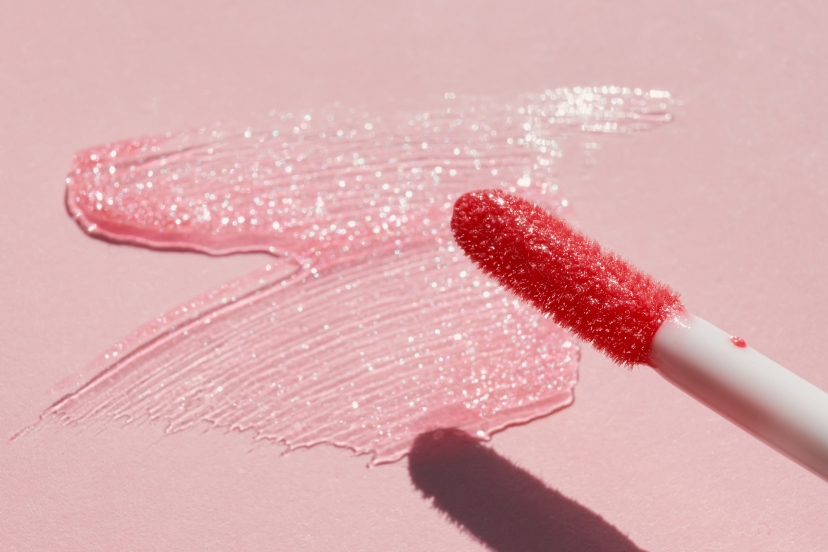Organic Beauty Ingredients: Jojoba Oil
Well, hello there, fellow beauty enthusiasts! I’m thrilled to be on this journey with you, exploring the magic of natural ingredients. Today, we’re talking about one of my absolute favorites: Organic Jojoba Oil. Trust me, by the end of this article, you’ll be as obsessed with it as I am!
Exploring Organic Jojoba Oil: An Unmatched Elixir
Picture this: you’re in the Sonoran Desert. It’s a hot, dry day. Amidst the rugged terrain, you spot something fascinating – a resilient shrub thriving in the arid climate. That, my friend, is the jojoba plant, and it’s where our story begins. This hardy shrub produces seeds that contain liquid wax, known as jojoba oil. The incredible part? This oil imitates the natural sebum of our skin, making it a godsend for our beauty routines.
When I say that jojoba oil mimics the natural sebum of our skin, I mean that its composition is very similar to the oils that our skin naturally produces. Sebum is the oil produced by your sebaceous glands, and it’s a crucial in protecting your skin, keeping it moisturized and maintaining its overall health.
In an ideal world, our skin would produce just the right amount of sebum. But factors like weather, age, hormones, and even diet can throw this balance off. If our skin isn’t producing enough sebum, it can become dry and flaky. On the other hand, too much sebum and you’ll find yourself with oily skin and clogged pores, which can result in acne.
That’s where jojoba oil comes in. Because its structure closely resembles that of sebum, it can help balance out our skin’s oil production. If our skin is too dry, applying jojoba oil can provide the extra moisture it needs. On the flip side, if our skin is too oily, jojoba oil can actually trick it into thinking it has produced enough oil, thereby reducing excess sebum production.
For example, consider a scale that’s tipped heavily to one side. You’d add or remove weight (in this case, oil) to bring it back to balance. That’s essentially what jojoba oil does. It adds moisture when your skin is dry or helps manage oil production when your skin is too oily, helping maintain that perfect balance.
Sourcing Organic Jojoba Oil: A Step Closer to Nature
The extraction process of Jojoba oil is as unique as the oil itself. The seeds are cold-pressed, which means the oil is extracted without using heat. This method retains all the potent nutrients, making it incredibly beneficial for our skin and hair.
Jojoba oil comes from the seeds of the jojoba plant, scientifically known as Simmondsia chinensis. This plant is a shrub native to arid regions of Arizona, Mexico, and Southern California. It’s quite a resilient plant, able to thrive in harsh desert climates where many other plants can’t survive.
One of the fascinating aspects of the jojoba plant is its longevity and ability to regenerate. This plant can live up to 200 years and even survive wildfires because it can regrow from its underground stem.
The jojoba plant produces seeds, and it’s these seeds that are a valuable resource. Each seed contains approximately 50% oil. The oil is extracted from the seeds through a cold-pressing process.
This method involves pressing the seeds to extract the oil. The result is a pure, high-quality oil that retains all of its natural properties, without the use of harsh chemicals or high temperatures.

Harnessing the Power of Jojoba Oil: Its Incredible Benefits
Now, let’s talk about why jojoba oil is the queen of beauty ingredients. This golden elixir is brimming with vitamins E and B, antioxidants, and minerals like chromium, copper, and zinc. Its nutritional richness makes it an exceptional ingredient in your skincare and haircare routine. But wait, there’s more!
Six Unbelievable Benefits of Jojoba Oil for Skin and Hair
1. Moisturizer extraordinaire: Because jojoba oil mimics our skin’s sebum, it’s an excellent moisturizer that doesn’t clog pores. Say hello to hydrated, happy skin!
2. Hair hero: It nourishes and strengthens hair, reduces dandruff, and promotes scalp health. Your hair will thank you for this treat!
3. Anti-aging ally: The antioxidants in jojoba oil fight off free radicals that cause premature aging. It’s like a time machine for your skin!
4. Acne adversary: Jojoba oil has anti-inflammatory and antibacterial properties that help manage acne. It’s a win-win!
5. Soothing savior: Its anti-inflammatory properties can help soothe irritated skin and accelerates wound healing.
6. Lip lubricant: It works as an excellent lip balm, especially in harsh weather conditions.
A Curious Fact About Jojoba Oil
Now, for a fun fact: Did you know that jojoba oil isn’t technically an oil? It’s actually a liquid wax. Surprising, right?
The Other Side of the Coin: Cons of Using Jojoba Oil
As much as I love jojoba oil, it’s only fair that I tell you about its potential downsides:
1. Allergies: Some people might be allergic to jojoba oil, causing rashes or itching. Always do a patch test!
2. Expense: Pure, organic jojoba oil can be a bit pricey compared to other oils.
3. Shelf life: It has a long shelf life compared to other beauty oils, but it can still go bad. Be sure to store it properly and use it before the expiration date. It can last for up to five years if stored correctly. This longevity is due to its unique chemical structure as a wax ester rather than a traditional oil, which makes it more stable and less prone to rancidity.
How to maximize the shelf life of your organic jojoba oil? follow these storage tips:
– Store in a cool, dark place: Heat and light can degrade the oil over time. A cupboard away from direct sunlight or a cool pantry is ideal.
– Use a dark, glass bottle: Dark-colored glass bottles can help protect the oil from light exposure. If your oil comes in a clear bottle, be sure to store it in a dark place.
– Keep the bottle sealed: Always seal the bottle after use. Exposure to air can oxidize the oil, leading to a change in its composition and potentially shortening its shelf life.
Remember, if your jojoba oil changes color, develops an off smell, or changes in consistency, it’s best to discard it as these are signs the oil has gone bad. But with proper storage, you can keep your oil fresh and effective for a long time.
Understanding the Comedogenic Nature of Jojoba Oil
Now, let’s talk about comedogenic ratings. On a scale from 0 to 5, jojoba oil stands at a friendly 2, which means it has a moderate likelihood of clogging pores. Remember how I mentioned it mimics our natural sebum? That’s why it’s generally great for all skin types, but if you have particularly oily or acne-prone skin, you may want to use it sparingly.
The Upper Hand: Why Organic Jojoba Oil Rules in Beauty
Organic jojoba oil is a clear winner because it’s free from pesticides and artificial chemicals that can harm your skin and the environment. Non-organic versions may contain harmful substances, leading to skin irritations, allergies, and even long-term health issues.
DIY Time: Crafting Your Own Beauty Recipe with Jojoba Oil
Ready for some DIY fun? Let’s whip up a simple face mask using just five ingredients: organic jojoba oil, honey, turmeric, plain yogurt, and a ripe banana. Mix them together, apply the paste on your face, leave it on for 20 minutes, then rinse off for glowing, nourished skin.
By the way I like this Organic Jojoba oil. Why? it’s ecocert certified and it’s 100% cold press and hexane free.
Wrapping it up…
Jojoba oil it’s an ingredient worth considering for its versatility, and because it brings a bit of Mother Nature’s magic into our beauty routines I believe you should give it a go…you might just find it’s the beauty elixir you’ve been searching for.
FAQs
-Can I use jojoba oil every day?
Absolutely! You can use jojoba oil daily, but remember, a little goes a long way. But don’t use it on a daily basis if you have oily or combination skin…if you know, you know!
-Can I use jojoba oil as a makeup remover?
Yes, jojoba oil is excellent at breaking down makeup without irritating your skin. Just be sure to rinse your face afterwards.
-Can I apply jojoba oil before bed?
Indeed, you can. It’s an excellent nighttime moisturizer.
-Is jojoba oil safe for sensitive skin?
Yes, but as with any new product, do a patch test first.
– Can I use jojoba oil on my hair?
Yes! It nourishes and strengthens the hair and promotes scalp health.









